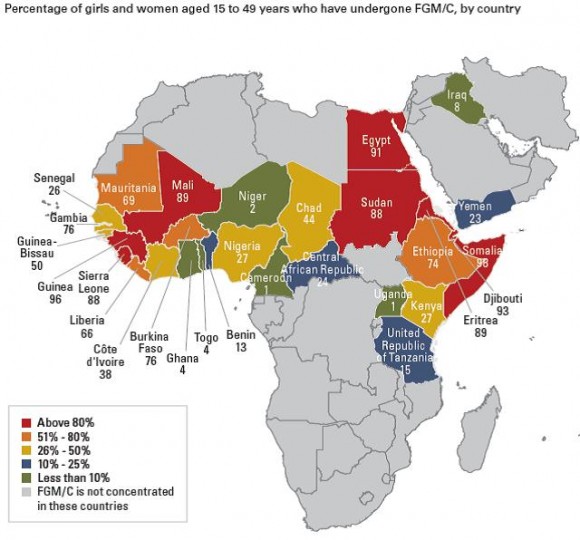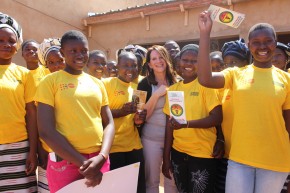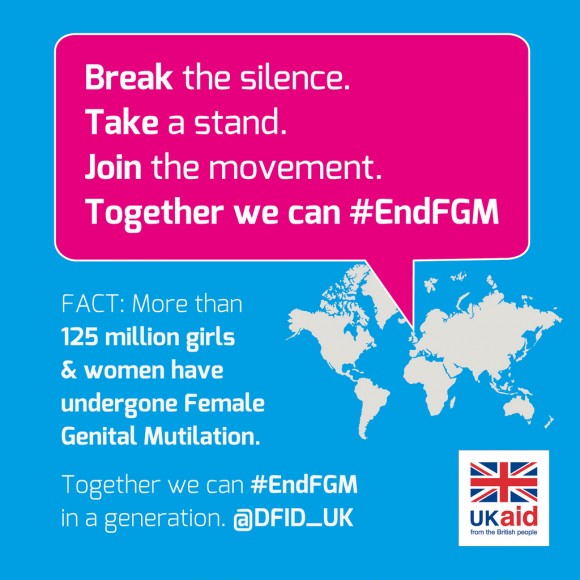As a woman, a mother, a Member of Parliament and a government minister, I make my voice heard and take significant decisions every day of my life.
But there are millions of women and girls around the world who don’t have the luxury of having their voice heard or making choices about their futures.
One of the clearest examples of women’s lack of choice, voice and control is female genital mutilation or cutting (FGM/C), on which I have launched the world’s biggest programme as part of my cross-government campaign to end FGM/C within a generation.
FGM/C is still practised across a swathe of countries in Africa. In some countries, like Somalia, Guinea, Djibouti and Egypt, more than 90% of girls and women over the age of 15 have undergone FGM/C.

Let me be absolutely clear. Even if it is practised not as a form of cruelty but because it is an entrenched social norm, FGM/C is child abuse. It simply has to end.
And there are glimmers of hope. This week, I’m in Burkina Faso to see the efforts of a country that outlawed FGM/C in 1996 and is at the forefront of bringing the numbers of girls who have undergone FGM/C down and who are prosecuting those who continue the practice.

Although 76% of girls and women between the ages of 15 and 49 have undergone FGM/C in Burkina Faso, the prevalence among girls aged 15 to 19 has dropped by 31%. That’s an impressive shift – but there’s a long way to go.
The Prime Minister, David Cameron, said last week that: “this year, Britain should lead the charge on women’s equality, women’s empowerment, and the empowerment of women and girls, not only because it is a good thing in and of itself, but because if you look at why countries don’t develop or why countries develop slowly, if they exclude women from the work force, if they do not give them equal rights, if there are not proper systems in place for maternal mortality and for safe childbirth, if you don’t have family planning, that country will be held back."
With that in mind, I’m here in Burkina Faso to find out what we can learn from the African-led movement against harmful practices that damage women and girls. I’ll tell you about what I find in a series of blogs this week, and through a range of activities for the International Day of Zero Tolerance of FGM/C on the 6th February.
I hope you’ll join me here in the fight to help give women around the world the voice, choice and control they deserve, and end FGM/C within a generation.
Break the Silence. Take a stand. Join the Movement. Together we can #EndFGM

------------------------------------------------------------------------------
Find out what the British government is doing to eliminate female genital mutilation.

1 comment
Comment by Voice, choice and control: Tackling FGM in Burkina Faso | Lynne Featherstone posted on
[...] Here’s a blog from Burkina Faso – also available here. [...]